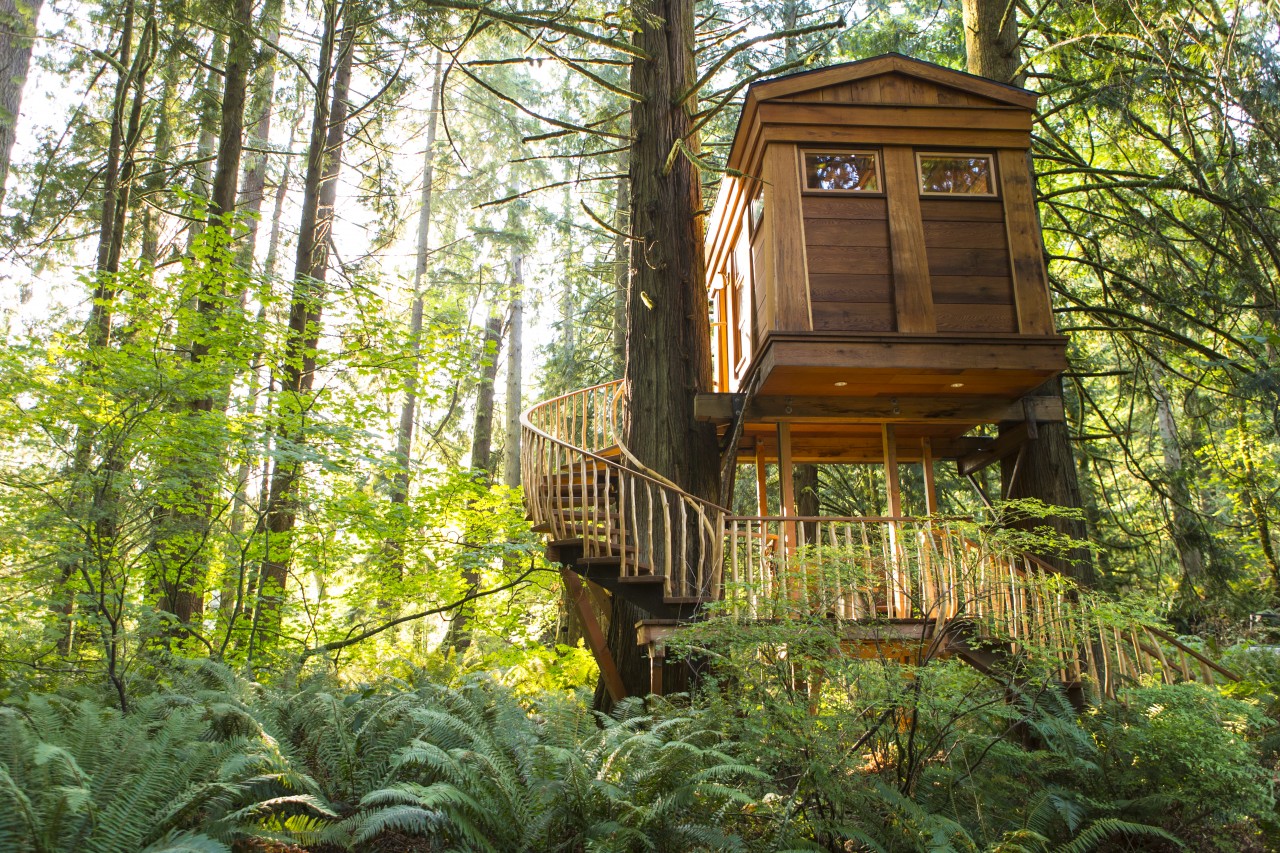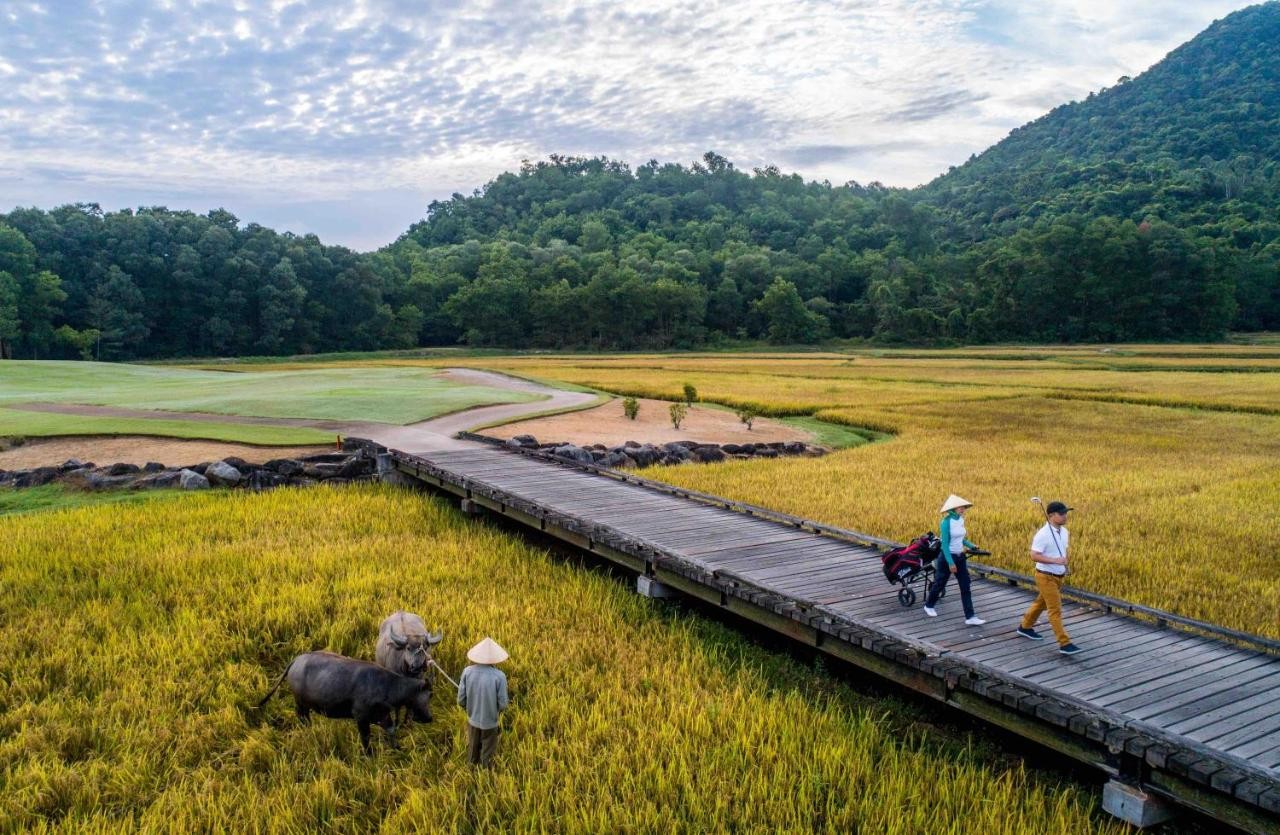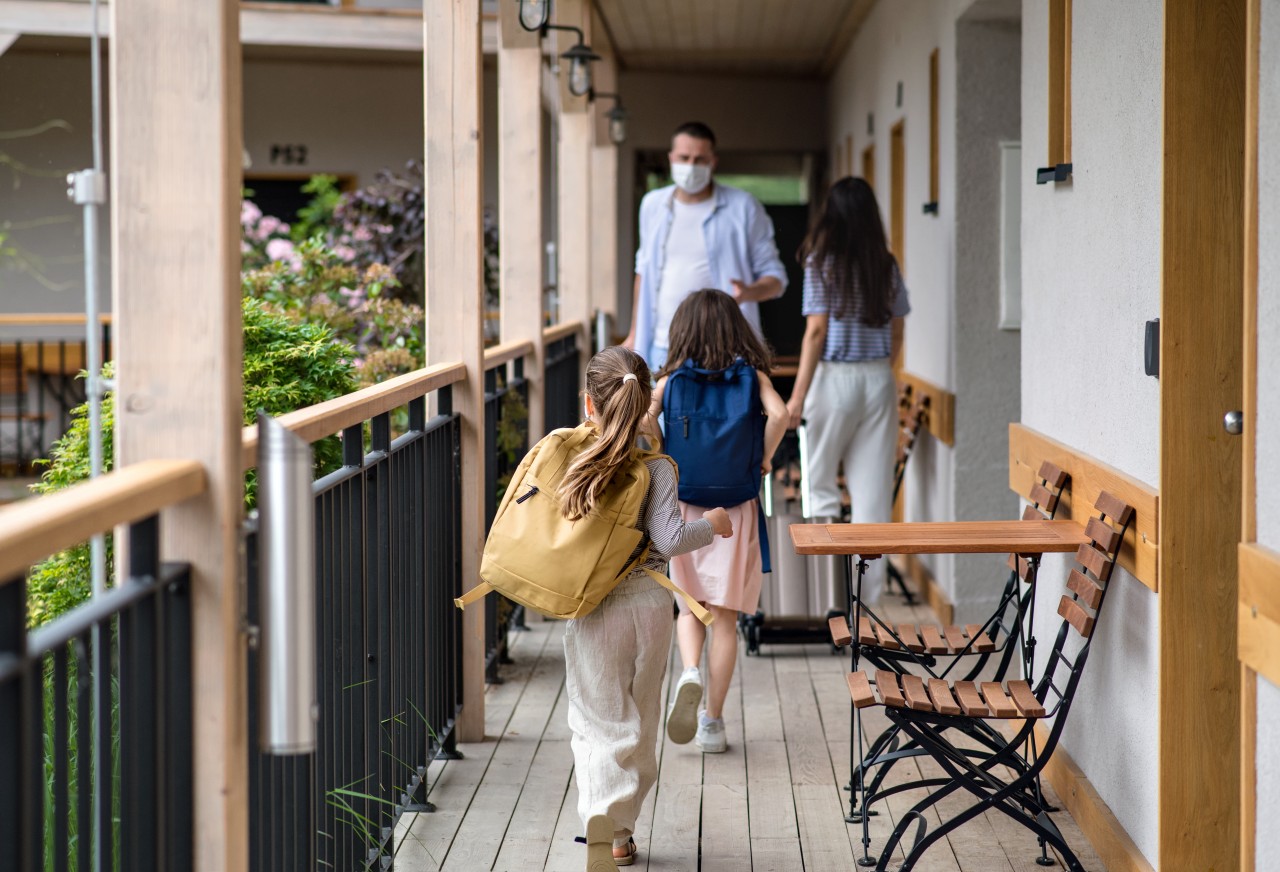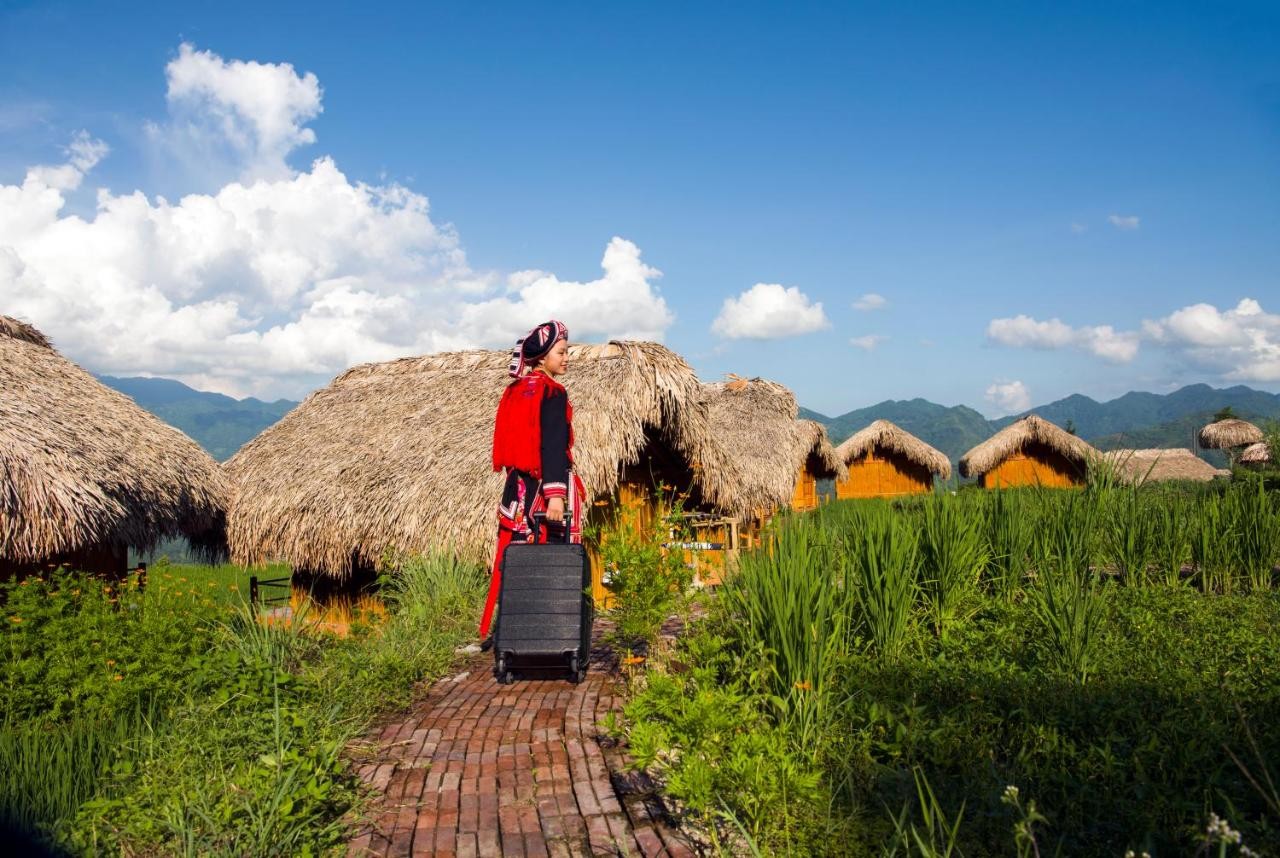Lockdown has been hard in many ways with travellers itching to get out and explore this big, beautiful world of ours again. This pause has led us to reflect on our impact on the environment and local communities for when we do start taking trips again. According to Booking.com’s 2021 Sustainable Travel Report, 88% of Vietnamese travellers admit that seeing the impact of the Coronavirus pandemic has encouraged them to introduce positive lifestyle changes and 79% of Vietnamese travelers believe that people have to act now in order to save the planet for future generations.
Luckily, making sustainable choices has become easier and more affordable than one might expect. There are many simple ways we can limit our environmental impact, and better support and engage with local communities during our upcoming trips. To help make it easier for everyone to travel more sustainably, Booking.com shares 7 simple tips to create a positive impact on your next trip, when it is safe to do so again.
Choose a sustainable accommodation option
Picking a more sustainable place to stay for your next trip is a great place to start – and it doesn’t necessarily mean spending a lot of money. There are plenty of sustainable options for every budget and taste. In fact, 100% of Vietnamese travellers from Booking.com’s recent survey mentioned that they would choose a specific accommodation if they knew it was implementing sustainable practices.
One of the easiest ways to confidently book a more sustainable property is to check and see if it has an established eco-label or third-party sustainability certification. There are numerous, reputable third-party sustainability certifications that properties can work towards and achieve. To make it easy for travellers, Booking.com is currently displaying over 30 certifications officially approved by the Global Sustainable Tourism Council (GSTC), Green Tourism and the EU Ecolabel as well as multiple hotel chain sustainability programs. On Booking.com, you can look for some accommodations that have been rewarded with sustainable certifications such as Banyan Tree Lang Co (EarthCheck Certified), Anantara Hoi An Resort (Green Growth 2050), AVANI Hai Phong Harbour View (Green Growth 2050) and others.
Get off the beaten track

Play your part in reducing overtourism by travelling during off-peak seasons or exploring undiscovered destinations.
The pandemic has influenced 64% of Vietnamese travelers to avoid popular destinations and attractions to ensure they aren’t contributing to overcrowding. Being mindful when choosing your next trip can help reduce overtourism, which can be a major issue for fragile environments, ecosystems and local communities. Consider travelling to lesser-known destinations or a location just outside a busy sightseeing area. Alternatively, travel during off-peak seasons when there are fewer other visitors.
For avid travellers who are craving “Vitamin Sea”, less populated beaches like Ky Co (Quy Nhon) and Tu Nham (Phu Yen) are great places to explore, when it is safe to do so. Alternatively, you can also trek through the pine forests of Lam Dong or get lost in great natural sights at magnificent natural reserves like Cat Tien.
Bye Bye, plastic!
Limiting single-use plastic is arguably one of the greatest environmental challenges we face. With an estimated 91% of plastic not being recycled, most of it ends up either in the ocean or landfills. Many properties have taken numerous steps to either reduce or eliminate single-use plastics from their operations, but travellers can also take simple steps like using reusable water bottles instead of buying plastic bottles of water while on vacation or packing your own reusable toiletry bottles with your favorite products from home. An alternative to single-use plastic, steel water bottles are more durable and can be used for years.
If you’re travelling to places where the tap water isn’t safe to drink – you still have options. Consider purchasing water purification tablets, a Lifestraw or a UV-light purifier (a small, lightweight wand-like item that emits UV light to destroy bacteria, viruses and protozoa (parasites) in water)
Book virtuous activities that give back to the community
When planning activities for your trip, look for tour companies that give back to and empower the local community, and also engage in ethical tourism practices. According to Booking.com’s recent report* respect for the local community is high on the list of Vietnamese travellers with 84% wanting to have authentic experiences that are representative of the local culture when they travel, and 93% mentioning that increasing cultural understanding and preservation of cultural heritage is crucial. By supporting these companies, local communities can directly and equally benefit from the travel industry.
Bring good habits with you on vacation
Many are already conscious at home about turning off the lights when we are not using them, or being careful about when and how high we use the air-conditioning. However, 53% of Vietnamese travellers believe it’s harder to make sustainable choices on vacation. A sustainable first step could be as simple as remembering to carry those mindful habits from home along when you travel. While switching over to LED light fixtures or having keycard-controlled power in the room aren’t things you can control as a guest, travellers can ensure they switch off the lights when they step out of their room, reuse their towels or forego daily linen changes and being more mindful of the length of the showers they take. By simply being more aware and taking practical but responsible steps will add up to impactful change.
Pick up one item of rubbish when you leave
A good rule of thumb for travelling more sustainably, is to try and leave the places you visit better than when you found them. A simple way to do this is to pick up a discarded item of rubbish when you leave- a small but important step in taking care of our environment. And every action counts – just picking up one piece of plastic on a beach means one less piece ending up in the sea.
Buy locally
When you travel, one of the best ways to support the local economy and limit your carbon footprint is to shop locally and eat food from street vendors or restaurants that use sustainably sourced produce. Avoid eating at popular fast-food chains that usually import produce from all across the globe and eat in local restaurants that likely use local produce instead. And if you’re cooking for yourself, try to purchase from local markets, too. Testament to this is 59% of Vietnamese travellers who mentioned that they shopped at small local stores to support the local economy during their travels over the past year.
Methodology
*Research commissioned by Booking.com and independently conducted among a sample of 29,349 respondents across 30 countries and territories (1,000 from USA, 1,007 from Canada, 1,000 from Mexico, 964 from Colombia, 1,000 from Brazil, 1,000 from Argentina, 999 from Australia, 941 from New Zealand, 1,001 from Spain, 1,000 from Italy, 1,000 from France, 1,000 from UK, 1,000 from Germany, 1,003 from Netherlands, 986 from Denmark, 1,000 from Sweden, 997 from Croatia, 1,005 from Russia, 1,003 from Israel, 1,000 from India, 1,000 from China, 1,005 from Hong Kong, 968 from Thailand, 963 from Singapore, 1,000 from Taiwan, 1,005 from Vietnam, 1,000 from South Korea, 1,000 from Japan, 1,002 from South Africa and 500 from Kenya). In order to participate in this survey, respondents had to be 18 years of age or older, had to have traveled at least once in the past 12 months and must be planning to travel in 2021, and be either the primary decision maker or involved in the decision making of their travel. The survey was taken online and took place in March 2021.

























